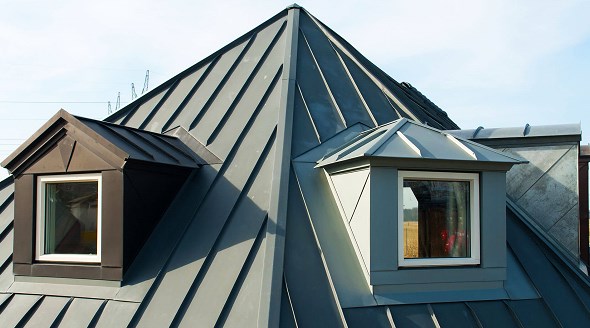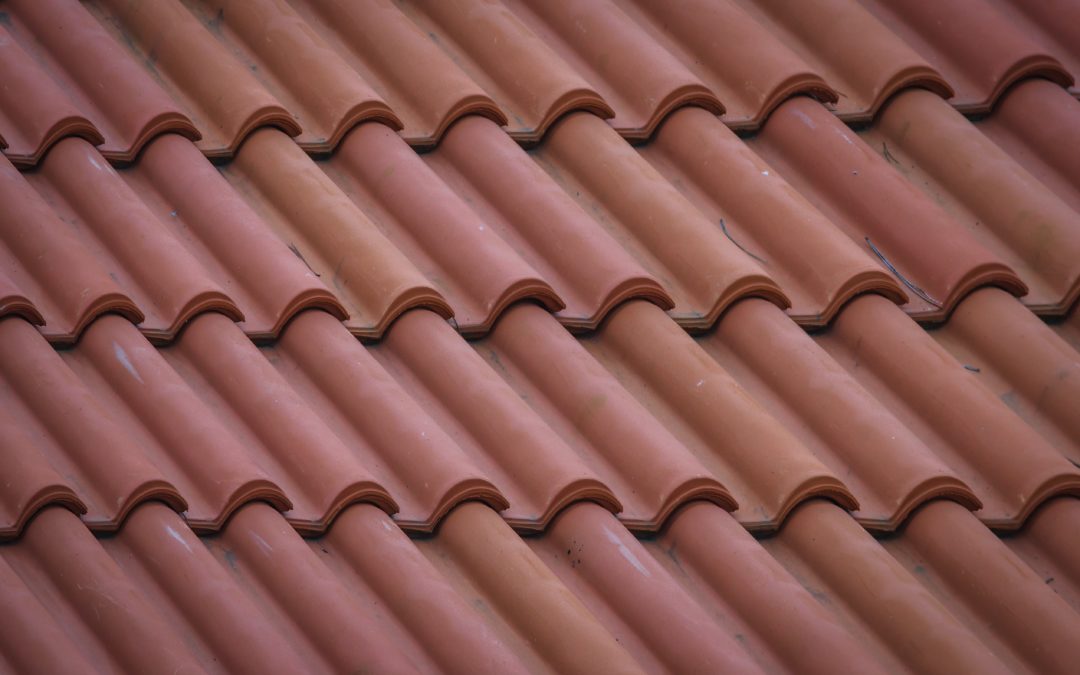If you’re not familiar with the term, oil canning refers to a visual phenomenon that causes wavy distortions in steel sheets and other metal products. It can occur at various stages of production when metal is bent during fabrication, causing buckling or warping.
The severity of the oil canning effect varies depending on the thickness of the metal sheet and its orientation. Typically it occurs in fabricated metal products with a moderate amount of metal (i.e., 1-3mm).
Oil canning is a visual phenomenon that causes wavy distortions in steel sheets and other metal products. Oil canning, also known as “oil choking” or “oil wrinkling,” happens when metal sheets are bent or pulled in a specific way. The resulting waves on the surface of the metal are unsightly but relatively harmless.
Do you need help installing your metal roof now? Click here to review our services.
When oil canning occurs, it is usually the result of poor fabrication techniques. However, when you choose to work with an experienced roofing company like Cache Roofing, all the techniques used to minimize oil canning are employed.
What Causes Oil Canning?
Oil canning is a visible, wavy distortion that affects cold-rolled metal products. It’s seen in the flat areas of metal panels and can be characterized as a moderate aesthetic issue. It’s caused by the metal being exposed to heat which causes it to expand and contract, creating dents and dents on the edges.
Metal manufacturers offer flat, ribbed, minor irked, and striated types to help minimize oil canning. You sign a waiver so that all concerned understand oil canning can potentially happen. Striated is the best panel to choose as upgrading to a thicker gauge is not always budget friendly. Oil canning can affect the appearance of the metal, which can be further exacerbated by applying paint. This extra paint often corrodes the metal, causing it to rust or chip away over time.
The problems associated with oil canning are the distortion of the metal panel surface and minor visible surface defects. Often, these defects are not visible to the naked eye. Common surface defects include chips, scratches, and dents, along with air bubbles or other surface irregularities, but are not the result of oil canning. This is common with age. However, a metal roof should not experience any defects during its warranted period. To read about other common problems when working with a roofing company, click here.
How Can You Protect Your Metal Roofing from Oil Canning?

If you want to help protect your metal roofing from oil canning, first and foremost, you should hire professionals who have decades of experience doing it. For example, a professional roofer needs to understand when installing metal panels to check for any problems with the decking before starting, and marking areas that can’t be fixed.
Additionally, highly qualified roofers know to screw the screws just enough to allow movement of the panels and avoid over tightening. This is especially true where dips may occur on the roof decking. Techniques such as applying a backer rod to the back side of the panels, and using wedges to support panels in low areas that could not be fixed, are crucial to the longevity of your roof.
Oil canning is almost always the result of poor installation, so one of the best actions you can take prior to a roof installation is to do your homework. Roofing companies, such as Cache Roofing, have decades of experience and happy customers backing up the expertise. Make sure you are finding one with a good reputation and reviews to back it up.
The other thing you can do to protect your metal roof from oil canning is to simply choose a thicker gauge metal panel. Why does this help to protect against oil canning? The thicker the gauge, the more rigid the metal panel is, which makes it more challenging to dent or distort. But, it is also costlier as well.
Finally, it is essential to note that it is impossible to guarantee that your metal roofing panels will not experience oil canning. But, choosing to work with an experienced business gives you the confidence to know you are receiving the best in class installation in your area. We would be happy to discuss any questions you may have about oil canning, or about installing a metal roof! Call us today!
cacheroofing.com
Oil Canning: What It Is and How to Protect Your Metal Roof.
If you’re not familiar with the term, oil canning refers to a visual phenomenon that causes wavy distortions in steel sheets and other metal products. It can occur at various stages of production when metal is bent during fabrication, causing buckling or warping.
The severity of the oil canning effect varies depending on the thickness of the metal sheet and its orientation. Typically it occurs in fabricated metal products with a moderate amount of metal (i.e., 1-3mm).
Oil canning is a visual phenomenon that causes wavy distortions in steel sheets and other metal products. Oil canning, also known as “oil choking” or “oil wrinkling,” happens when metal sheets are bent or pulled in a specific way. The resulting waves on the surface of the metal are unsightly but relatively harmless.
Do you need help installing your metal roof now? Click here to review our services.
When oil canning occurs, it is usually the result of poor fabrication techniques. However, when you choose to work with an experienced roofing company like Cache Roofing, all the techniques used to minimize oil canning are employed.
What Causes Oil Canning?
Oil canning is a visible, wavy distortion that affects cold-rolled metal products. It’s seen in the flat areas of metal panels and can be characterized as a moderate aesthetic issue. It’s caused by the metal being exposed to heat which causes it to expand and contract, creating dents and dents on the edges.
Metal manufacturers offer flat, ribbed, minor irked, and striated types to help minimize oil canning. You sign a waiver so that all concerned understand oil canning can potentially happen. Striated is the best panel to choose as upgrading to a thicker gauge is not always budget friendly. Oil canning can affect the appearance of the metal, which can be further exacerbated by applying paint. This extra paint often corrodes the metal, causing it to rust or chip away over time.
The problems associated with oil canning are the distortion of the metal panel surface and minor visible surface defects. Often, these defects are not visible to the naked eye. Common surface defects include chips, scratches, and dents, along with air bubbles or other surface irregularities, but are not the result of oil canning. This is common with age. However, a metal roof should not experience any defects during its warranted period. To read about other common problems when working with a roofing company, click here.
How Can You Protect Your Metal Roofing from Oil Canning?
If you want to help protect your metal roofing from oil canning, first and foremost, you should hire professionals who have decades of experience doing it. For example, a professional roofer needs to understand when installing metal panels to check for any problems with the decking before starting, and marking areas that can’t be fixed.
Additionally, highly qualified roofers know to screw the screws just enough to allow movement of the panels and avoid over tightening. This is especially true where dips may occur on the roof decking. Techniques such as applying a backer rod to the back side of the panels, and using wedges to support panels in low areas that could not be fixed, are crucial to the longevity of your roof.
Oil canning is almost always the result of poor installation, so one of the best actions you can take prior to a roof installation is to do your homework. Roofing companies, such as Cache Roofing, have decades of experience and happy customers backing up the expertise. Make sure you are finding one with a good reputation and reviews to back it up.
The other thing you can do to protect your metal roof from oil canning is to simply choose a thicker gauge metal panel. Why does this help to protect against oil canning? The thicker the gauge, the more rigid the metal panel is, which makes it more challenging to dent or distort. But, it is also costlier as well.
Finally, it is essential to note that it is impossible to guarantee that your metal roofing panels will not experience oil canning. But, choosing to work with an experienced business gives you the confidence to know you are receiving the best in class installation in your area. We would be happy to discuss any questions you may have about oil canning, or about installing a metal roof!
Call us today!


Recent Comments